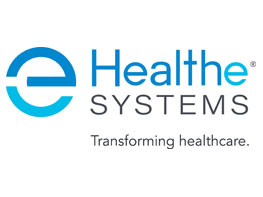White Paper
The Real Promise of Artificial Intelligence in Healthcare and Workers’ Comp
White Paper Summary
 Currently, artificial intelligence (AI) is being used by hospitals and healthcare systems in multiple ways, including adverse-event prediction, schedule optimization, and inventory control. Healthcare providers are using AI for such applications as chronic disease management and personalizing the patient experience. However, overall adoption is still in early stages. Only 14% of healthcare professionals report using AI today, and 33% believe that AI will hurt the healthcare industry more than it helps. Industry analysts disagree, however. According to McKinsey, “AI represents a meaningful new tool that can help unlock a piece of the unrealized $1 trillion of improvement potential present in the [healthcare] industry.”
Currently, artificial intelligence (AI) is being used by hospitals and healthcare systems in multiple ways, including adverse-event prediction, schedule optimization, and inventory control. Healthcare providers are using AI for such applications as chronic disease management and personalizing the patient experience. However, overall adoption is still in early stages. Only 14% of healthcare professionals report using AI today, and 33% believe that AI will hurt the healthcare industry more than it helps. Industry analysts disagree, however. According to McKinsey, “AI represents a meaningful new tool that can help unlock a piece of the unrealized $1 trillion of improvement potential present in the [healthcare] industry.”
Projections for the future of AI in healthcare are optimistic. The global market for healthcare-specific AI applications was valued at $16.5 billion in 2022 and is expected to reach $198 billion by 2030. The anticipated rapid growth is attributed to multiple factors, including the COVID-19 pandemic (which put excessive pressure on the healthcare system and accelerated the need for automated solutions), increasingly large volumes of patient information available through electronic health records (EHR) and other data sources, and expanding opportunities to develop AI applications using the revolutionary ChatGPT and GPT-4 technologies.
There is no question that the healthcare industry needs solutions to combat staffing shortages and rising costs. AI holds the promise of significant help, as well as some risks, as it relates to healthcare and workers’ compensation.
For more content like this from Healthesystems visit their RxInformer clinical journal website.






